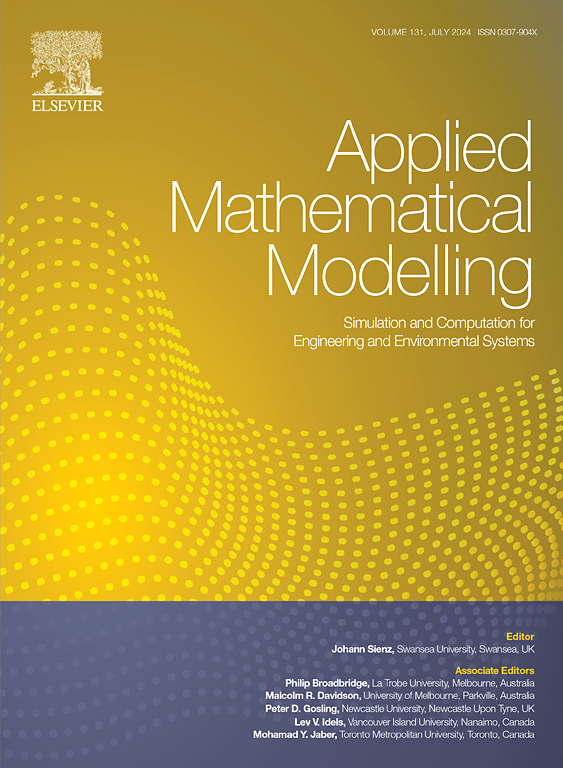有竞争力的制造商的战略决策:评估产品可替代性在能效合同中的作用
IF 4.4
2区 工程技术
Q1 ENGINEERING, MULTIDISCIPLINARY
引用次数: 0
摘要
通过优化战略决策实现利益最大化是相互竞争的制造商之间签订能效合同(EPC)安排的关键问题,但这一领域仍未得到充分探索。本文建立了一个模型,以研究在双头垄断市场中生产可替代产品的两家制造商之间的 EPC 合作。通过应用博弈论,研究探讨了这些制造商的战略决策过程,尤其关注产品的可替代性。对均衡结果的分析表明,当两家制造商都参与 EPC 时,市场总产出会增加。虽然 EPC 会导致价格下降,但由于价格下降,消费者的总体剩余也会增加。此外,由于节能服务成本上升,EPC 还有助于降低总能耗。研究发现,随着产品可替代性的提高,EPC 安排中由客户决定的分摊比例逐渐降低。与此同时,能源服务公司(ESCO)提供的节能服务水平也会提高。然而,当节能改造服务的成本系数相对较高且分摊比例在一定范围内时,服务水平会先下降后回升。这项研究就产品可替代性对两家相互竞争的制造商之间的工程总承包合同的影响提出了新的见解,为市场竞争环境下的战略决策提供了有价值的视角。本文章由计算机程序翻译,如有差异,请以英文原文为准。
Strategic decision-making of competitive manufacturers: Assessing the role of product substitutability in energy performance contracting
Maximizing benefits through optimized strategic decisions is a crucial concern in Energy Performance Contracting (EPC) arrangements among competing manufacturers, yet this area remains underexplored. This paper develops a model to examine EPC cooperation between two manufacturers producing substitutable products in a duopoly market. By applying game theory, the study investigates the strategic decision-making processes of these manufacturers, with a particular focus on product substitutability. The analysis of equilibrium outcomes reveals that when both manufacturers engage in EPC, total market output increases. Although EPC results in lower prices, it enhances overall consumer surplus due to the price reduction. Additionally, EPC contributes to a decrease in total energy consumption as the cost of energy-saving service rises. The study find that as product substitutability increases, the sharing ratio determined by the client in the EPC arrangement gradually decreases. Concurrently, the level of energy-saving service provided by the Energy Service Company (ESCO) increases. However, when the cost coefficient of energy-saving retrofitting services is relatively high and the sharing ratio falls within a certain range, the service level initially decreases before rising again. This research offers novel insights into the impact of product substitutability on EPC engagements between two competing manufacturers, providing valuable perspectives on strategic decision-making within a competitive market environment.
求助全文
通过发布文献求助,成功后即可免费获取论文全文。
去求助
来源期刊

Applied Mathematical Modelling
数学-工程:综合
CiteScore
9.80
自引率
8.00%
发文量
508
审稿时长
43 days
期刊介绍:
Applied Mathematical Modelling focuses on research related to the mathematical modelling of engineering and environmental processes, manufacturing, and industrial systems. A significant emerging area of research activity involves multiphysics processes, and contributions in this area are particularly encouraged.
This influential publication covers a wide spectrum of subjects including heat transfer, fluid mechanics, CFD, and transport phenomena; solid mechanics and mechanics of metals; electromagnets and MHD; reliability modelling and system optimization; finite volume, finite element, and boundary element procedures; modelling of inventory, industrial, manufacturing and logistics systems for viable decision making; civil engineering systems and structures; mineral and energy resources; relevant software engineering issues associated with CAD and CAE; and materials and metallurgical engineering.
Applied Mathematical Modelling is primarily interested in papers developing increased insights into real-world problems through novel mathematical modelling, novel applications or a combination of these. Papers employing existing numerical techniques must demonstrate sufficient novelty in the solution of practical problems. Papers on fuzzy logic in decision-making or purely financial mathematics are normally not considered. Research on fractional differential equations, bifurcation, and numerical methods needs to include practical examples. Population dynamics must solve realistic scenarios. Papers in the area of logistics and business modelling should demonstrate meaningful managerial insight. Submissions with no real-world application will not be considered.
 求助内容:
求助内容: 应助结果提醒方式:
应助结果提醒方式:


